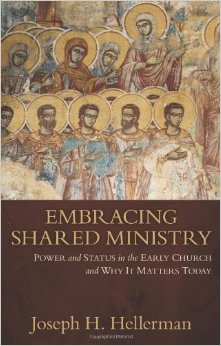
Two quotes from Aldous Huxley:
“So long as men worship the Caesars and Napoleons, Caesars and Napoleons will duly rise to make them miserable.”
“To his dog, every man is Napoleon; hence the constant popularity of dogs.”
(Confession moment: I am not really a dog person– I prefer cats because they are more relaxed in their loyalty. To much loyalty is not necessarily a good thing.)
It appears to me that there has long been a battle between those who love autocracy and those who hate it. Yet that is too simple. It is probably more accurate to say that there are those:
- Seeking to maintain power

- Seeking to tear down power structures to distribute power
- Seeking to tear down structures to replace with other structures that are more favorable for their own quest for power
- Seeking peace by ducking the conflicts as much as possible.
Huxley’s quotes above suggest that the development of oppressive power structures comes from people’s fascination with or lust for power.
I got thinking on this when I saw a book in the bookstore here in Baguio City, Philippines. It is “Embracing Shared Ministry” by Joseph Hellerman. I went back a few weeks later and found that it was already purchased by someone else (here in the Philippines, finding a good theology book available is a rare thing.) Curiously, a friend of mine had bought it and when he went back to his home country, he gave it to me. Nice!! Hellerman’s basic argument is that the early church was meant to be counter-cultural. Greco-Roman culture promoted centralization of power and fascination with warlords and emperors. The early church, correctly, rebelled against this. Hellerman suggested this is especially evident in Paul’s Epistle to the Church of Philippi.
I think a lot of Evangelical Churches have become a bit too cozy with power. In the recent elections, a lot of pastors I know are supporting (both here in the Philippines, as well as the United States) individuals that are powerbrokers while being pretty unpalatable ethically. Perhaps they see these individuals as the best choices (embracing the “lesser evil” ethical model). But the focus seems to be on their perceived ability to wield power and affect change over whether they have the will to affect change righteously (either in method or in goal). Despite the collapse of so many “Super-Christians,” especially from mega-churches or TV ministries, there seems to still be a fascination with “powerful” Christians, and many still embrace a Triumphalistic form of Christianity.
Such beliefs are often not well stated or even acknowledged, but sneak in via exegesis and theological arguments. This includes movements that argue that Christian submission is unilateral rather than mutual in church– more in common with the five relationships in Confucianism than the Bible.
Consider SOME Biblical commentators take on Paul. I have read the argument put forward that Paul must have been right for not allowing John Mark to join the 2nd missionary journey… because he was Paul (Luke recorded Paul’s actions, rather than Barnabas’ after all). The same argument has been used to argue that Paul was correct to (1) go against church guidance in traveling to Jerusalem— landing in jail for several relatively ineffectual years, and (2) confront Peter about eating arrangements (although both Paul and Peter appeared to choose arrangements that were missiologically justifiable). In some or all of these cases, it is possible that Paul was correct— but if he was correct, it was NOT because he was Paul. It was not that he was an apostle. It was not that he wrote 12 epistles in the New Testament (2nd only to Luke by volume). Fame makes people famous, not correct. Even being given authority by God or Church does not make individuals correct. People, even important people, are wrong an awful lot in the Bible.
One of the odd things (I am speaking now as a Baptist missionary) I have seen in Baptist cirrcles is the strong support among Baptist leaders for the concept of the “Senior Pastor.” Baptist apologists will argue against many church practices– sprinkling, infant baptism, hierarchal denominationalism, credalism, and such– based on Biblical arguments and the practices of the early church. Baptists challenge the formal priestly office as an invention centuries after the early church. Baptist also correctly challenge the hierarchal offices above the local churches in some denominations (often misusing early titles of “bishop” and “apostle”). But when it comes to the issue of local church leadership, the apologists reverse and begin seeking to justify the historical practice in the Baptist church, rather than drawing from the primitive church. Now, it may not be wrong to have a single “chief elder” in the church, but there certainly is nothing uniquely right about it. This may or may not be an example of sloppy exegesis, but it appears to me to be most certainly evidence that people in power like to find ways to get God to support their hold on power, and accumulation of more power.
Hellerman’s book supports a shared elder governance apparently, as an early church structure. He utilizes the Epistle to the Philippans to support this. Does he succeed? I think he does to some extent. It is not a slam dunk. The New Testament is frustratingly vague on church governance. Curiously, this vagueness may support Hellerman’s point. If power and hierarchy mattered, it probably would have been emphasized in Scripture. Additionally, people with power tend to talk a lot about power. So the little discussion of power roles in the church may suggest their relative absence. Certainly when we get to the writings of Ignatius (Theophorus) a few decades later, one does find a church leader of wants to talk a lot about power roles in the church. Hellerman would, I believe, see in Ignatius’ writings the Hellenization of Christianity— a process both good (contexuatlizaiton) and bad (syncretism).
You will note, this is not a review of the book. I wrote more of a review later. But it is a topic we all should wrestle with.
